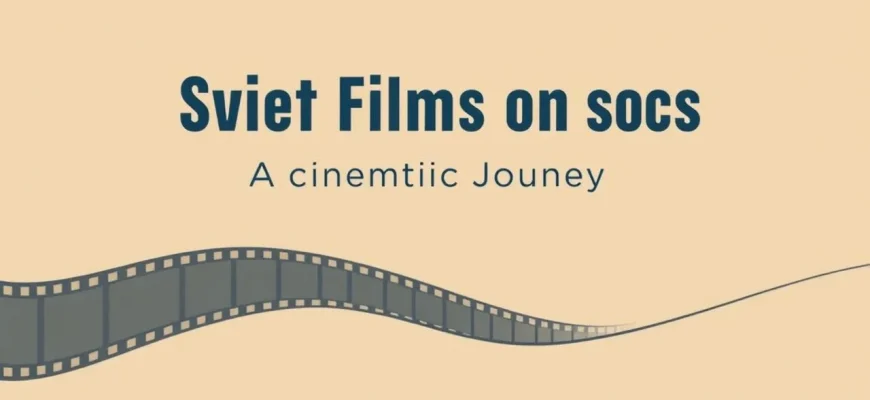Delving into the cinematic treasures of the Soviet Union, this collection of films provides a fascinating glimpse into the societal dynamics, cultural norms, and political undercurrents of the time. These movies not only entertain but also educate, offering insights into the lives of ordinary people, the complexities of the Soviet system, and the human spirit's resilience. Whether you're a film buff or a history enthusiast, these Soviet films about society will captivate you with their storytelling, depth, and authenticity.

The Cranes Are Flying (1957)
Description: This poignant drama explores the impact of World War II on Soviet society, focusing on love, loss, and the resilience of the human spirit. It's a must-watch for its emotional depth and its depiction of wartime life.
Fact: The film won the Palme d'Or at the Cannes Film Festival in 1958, making it one of the few Soviet films to achieve such international acclaim.
 30 Days Free
30 Days Free 
The Irony of Fate (1975)
Description: A satirical comedy about the uniformity of Soviet apartment blocks, it humorously critiques the lack of individuality in Soviet society while exploring themes of love and destiny.
Fact: This film has become a New Year's tradition in Russia, often watched on December 31st.
 30 Days Free
30 Days Free 
The Ascent (1977)
Description: Set during WWII, this film delves into the moral and ethical dilemmas faced by partisans, reflecting the harsh realities of Soviet society during wartime.
Fact: Larisa Shepitko, the director, tragically died in a car accident shortly after the film's completion.
 30 Days Free
30 Days Free 
The Commissar (1967)
Description: This film examines the clash between personal life and revolutionary duty, offering a nuanced look at the role of women in Soviet society during the Civil War.
Fact: It was banned in the Soviet Union for 20 years due to its critical portrayal of the Red Army.
 30 Days Free
30 Days Free 
The Mirror (1975)
Description: Andrei Tarkovsky's masterpiece reflects on Soviet life through a deeply personal lens, blending memories, dreams, and historical events to explore the essence of human existence.
Fact: The film's non-linear narrative and poetic visuals make it a challenging yet rewarding watch.
 30 Days Free
30 Days Free 
The Garage (1979)
Description: A satirical look at the absurdities of Soviet bureaucracy and the lengths to which people will go to secure a parking space, highlighting societal issues through humor.
Fact: The film was a box office hit, reflecting the everyday struggles of Soviet citizens.
 30 Days Free
30 Days Free 
The Diamond Arm (1969)
Description: A comedy about a man unwittingly involved in a smuggling operation, this film humorously critiques the black market and the societal norms of the time.
Fact: It's one of the most popular Soviet comedies, often quoted and referenced in Russian culture.
 30 Days Free
30 Days Free 
The Ballad of a Soldier (1959)
Description: This film tells the story of a young soldier's brief leave from the front, showcasing the human side of war and the impact on Soviet families.
Fact: It was nominated for an Academy Award for Best Original Screenplay.
 30 Days Free
30 Days Free 
The Dawns Here Are Quiet (1972)
Description: Set during WWII, this film focuses on a group of female anti-aircraft gunners, offering a poignant look at the role of women in Soviet society during the war.
Fact: The film was remade in 2015, highlighting its enduring appeal.
 30 Days Free
30 Days Free 
The Station Master (1972)
Description: Based on a Pushkin story, this film examines the life of a small-town station master, reflecting on themes of duty, love, and the passage of time in Soviet society.
Fact: It's part of a series of films adapting Pushkin's works, showcasing the cultural heritage of Russia.
 30 Days Free
30 Days Free 








